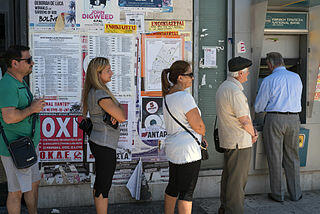
Greece's bailout referendum 2015: media coverage and the role of social networks
Greece's referendum on the bailout conditions proposed by international financial institutions garnered a lot of attention and debate at both the national and international level. Coverage by national media, however, was predominantly homogeneous in its support of the "yes", to the point of soliciting numerous complaints from viewers and investigations by the District Attorney of Athens, the Greek National Council for Radio and Television, and the Journalists’ Union of Athens Daily Newspapers.
The referendum question posed by Greece’s prime minister, Alexis Tsipras, was, “Do you accept the outline of the agreement submitted by the European Union, the European Central Bank and the International Monetary Fund at the Eurogroup meeting on June 25?” , i.e., “Do you accept the proposals of Greece’s creditors, which the government has rejected?"
According to the author, however, the major privately-owned Greek television stations largely - and intentionally - misrepresented the question as “Do you want to remain in the Eurozone?”, misleading the public with catastrophic scenarios of a possible victory of the “No”: exit from the Euro, exit from the Eurozone, and deeper poverty.
Despite the imbalance in media coverage, the scaremongering, and the massive international pressure, the majority of voters rejected the bailout conditions. The author uses voter demographics of the “no” to analyse the outcome of the referendum, identifying the following tendencies:
- the average age of "no" voters was between 18 and 24 years old, most of them students and worried for their lack of future perspectives;
- most “no” voters were unemployed or working poors, and therefore heavily affected by old and possible new austerity measures.
These groups, argues the author, had nothing to lose and were therefore unreceptive to the narratives of fear used by "yes" supporters.
Social media also played a crucial role, both before and during the referendum, in challenging the media's dominant "yes" propaganda. Using hashtags like #Greferendum, #Greecereferendum, #OXI, and so on, people shared posts, tweets, videos, and photos, and denounced major Greek media when they cut off the air any opposing position to the “yes” vote. On Twitter, in particular, the #OXI (“no”) vote found extensive space and following.
Tags: Greece Freedom of expression Media freedom Propaganda Ethics of journalism Social media Online news Online mediaThe content of this article can be used according to the terms of Creative Commons: Attribution-NonCommercial 4.0 International (CC BY-NC 4.0) . To do so use the the wording "this article was originally published on the Resource Centre on Media Freedom in Europe" including a direct active link to the original article page.

